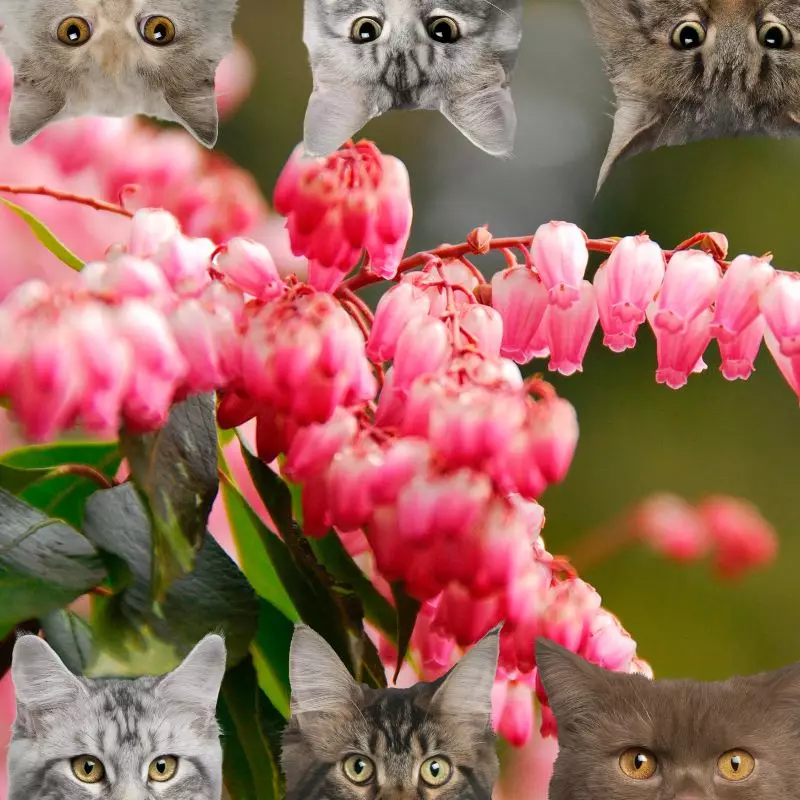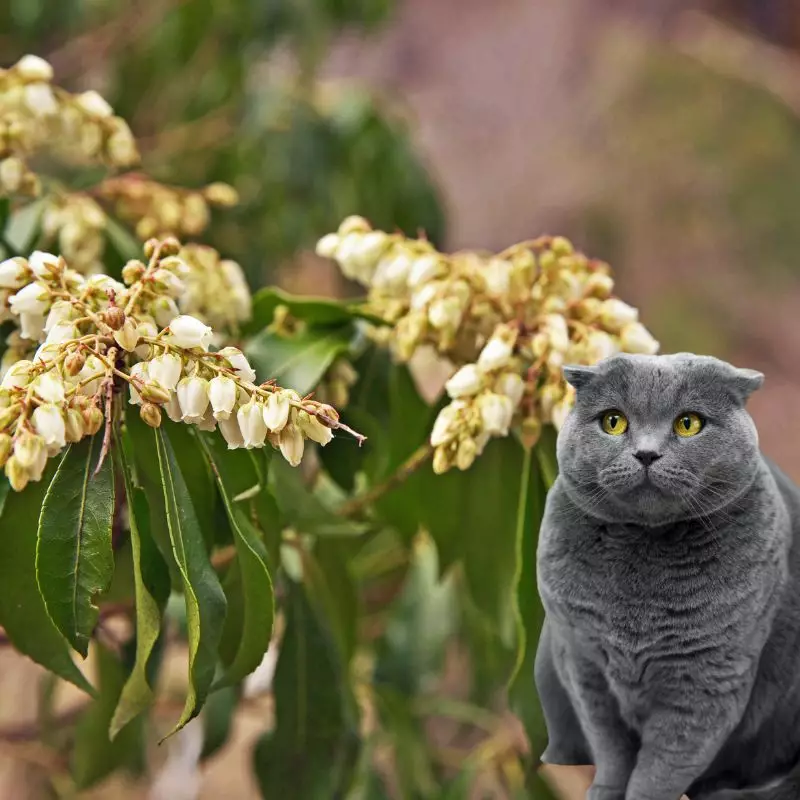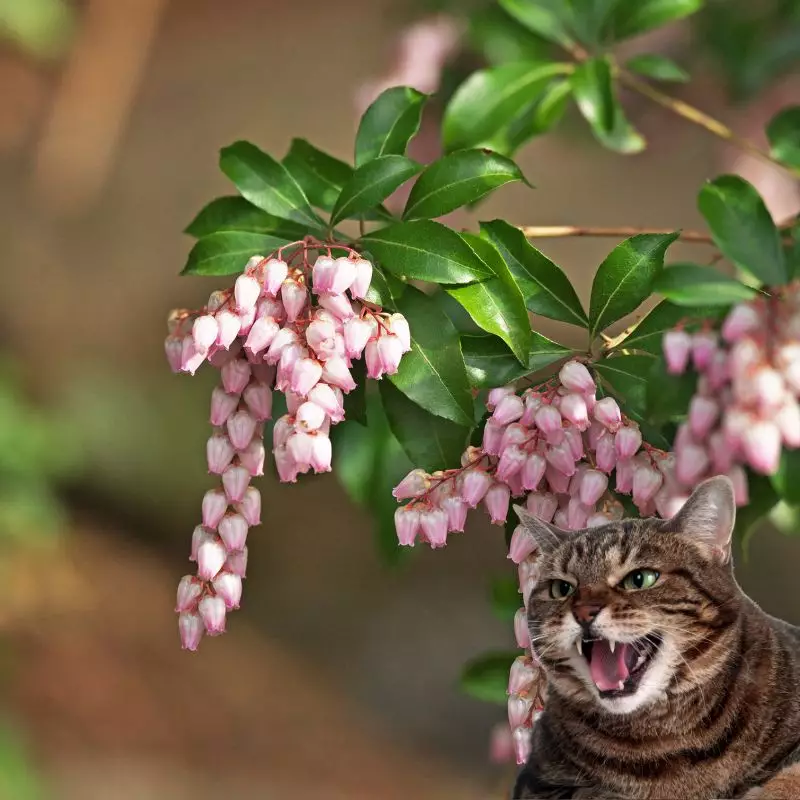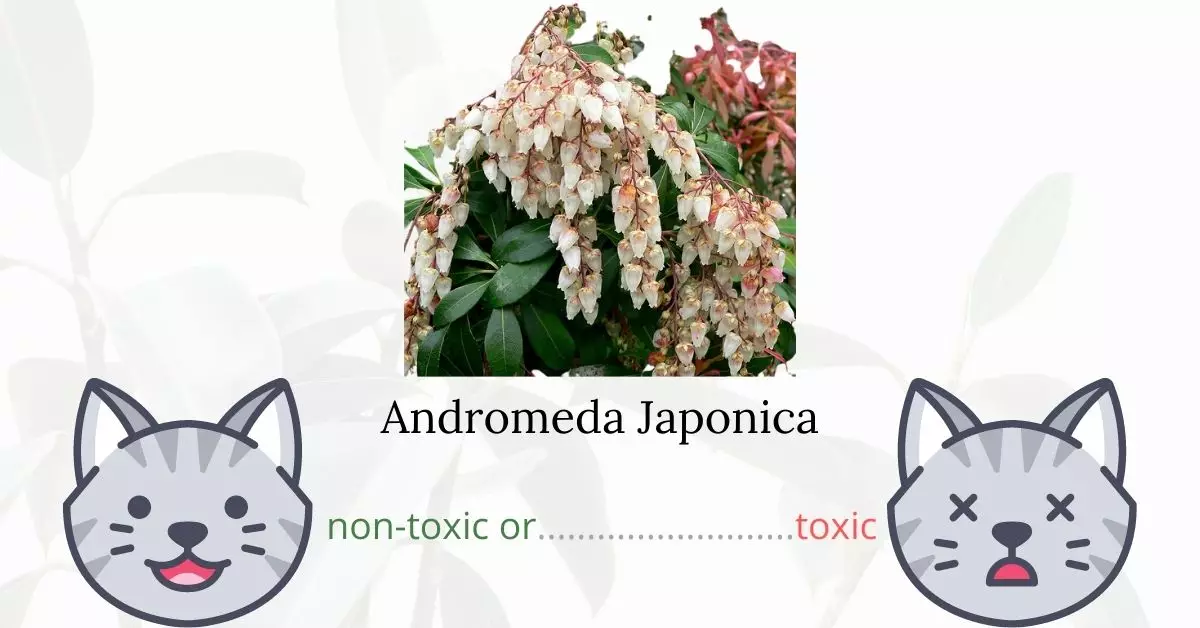Yes, Andromeda Japonica, commonly known as Japanese Andromeda, Pieris, Lily of the Valley Bush, and Bog Rosemary, is toxic to cats. All parts of the Andromeda Japonica, especially the foliage, contain grayanotoxins, also referred to as andromedotoxin. Grayanotoxin is a neurotoxin that targets the sodium channels of neurons, often leading to overstimulation of the central nervous system. While humans may not always be affected severely, its toxicity to many animals, especially cats, is well-documented.
This article was crafted in collaboration with a team of experienced DVMs (doctors of veterinary medicine). Their insights and expertise have immensely contributed to ensuring the accuracy and relevance of the information presented. Furthermore, to guarantee a comprehensive understanding of the potential risks, we have also extensively researched high-authority websites such as ASPCA and PetMD for every plant we discuss, including the Andromeda Japonica.
Clinical Signs of Andromeda Japonica Poisoning in Cats

After a cat comes into contact with, ingests, or even merely smells the Andromeda Japonica (also known as pieris japonica), it may exhibit signs of poisoning anywhere from a few minutes to several hours. The primary toxic agent in the plant is grayanotoxin. This chemical compound is produced by certain plants, including the Andromeda Japonica, as a defensive measure to deter herbivores by inducing aversive symptoms. Here’s a detailed breakdown of the symptoms and the reasons behind them:
- Vomiting: Grayanotoxin irritates the gastrointestinal lining, causing cats to throw up in an attempt to expel the harmful substance from their system.
- Diarrhea: Similarly, diarrhea is the body’s response to rid itself of the toxins by accelerating bowel movements.
- Lethargy or Lack of Energy: The toxin affects the central nervous system, resulting in a decrease in energy and enthusiasm. Cats may appear uninterested in their surroundings or play less than usual.
- Excessive Drooling: The plant’s toxins can cause inflammation or irritation in the mouth and throat, leading to increased saliva production as the body tries to alleviate and soothe the affected areas.
- Loss of Coordination: As grayanotoxin targets the nervous system, it can disrupt normal neural functions, causing unsteady movements or clumsiness.
- Cardiac Arrest: In severe cases, the toxin’s effect on the nervous system can lead to irregular heart rhythms or even stop the heart, which is a life-threatening emergency.
If you notice any of these symptoms in your cat after exposure to Andromeda Japonica, it is crucial to seek immediate veterinary attention.
First Aid and Treatment of Andromeda Japonica Poisoning in Cats

The first thing to do in any plant poisoning is to remove any visible part of the toxic plant from your cat’s mouth. It is best to seek medical help from a veterinarian once clinical symptoms show. The vet may give IV fluids to your cat to help in flushing out remaining toxins from his or her system. It would also help to prevent dehydration of your cat. Administering active charcoal is also possible to absorb any remaining residue of toxins in your cat’s body. In rare cases of cardiac arrest, the vet may opt to use atropine as a last resort to ease the symptoms.
Recovery from Andromeda Japonica Poisoning in Cats

Cats usually take several weeks to recover from andromeda japonica poisoning particularly for cats who suffered from severe symptoms. Follow-up visits may be required by the vet as it is essential for him to be able to monitor your cat’s progress in recovery.
Once you have taken your cat home, you should make your cat comfortable and give them time to recover. Foods that are extremely rich or difficult to digest should be avoided as soon as possible after a big sickness, as this can be too stressful for the digestive system.
Prevention
For safety, keep your cats confined inside your home. Keep them off from gardens and stray plants and bushes in your area. You may also try to build fences and put nets in the surrounding of your house as necessary. Always ensure that your cat has an adequate supply of food to maintain their good health condition.
If you love plants but have cats at home, check out these lists:





